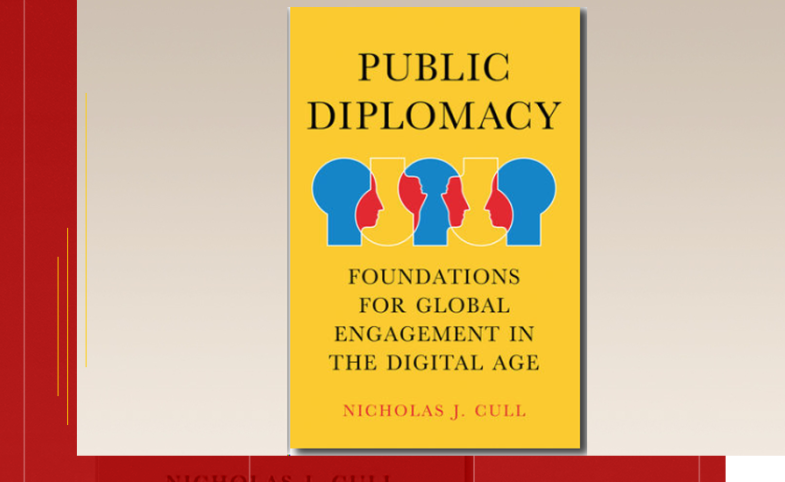Editor's Note: Riordan's full piece on strategic digital and public diplomacy is available here. Much has been written recently about digital diplomacy. But little gets beyond the use of social media to sell messages on...
KEEP READING
Meet the Author: Nicholas J. Cull
CPD Faculty Fellow Nicholas J. Cull is Professor and Director of the Master of Public Diplomacy program at USC and a prolific historian in the field of public diplomacy. His latest book, Public Diplomacy: Foundations for Global Engagement in the Digital Age, is out this spring. We sat down with Cull to ask him about this latest contribution to the field.
As technologies continue to forge ahead at breakneck speeds, how should today’s public diplomats integrate foundational lessons from history?
It is clear to me that while technologies change, human beings are basically as they were in the age of the Ancient Greek sages. I was thrilled to find that the thinker Bias of Priene from 500 BCE hit many of my core points. He is mentioned much more than Mark Zuckerberg in my text! My objective was to provide the core tools for understanding the practice of public diplomacy—how it differs from propaganda; the role of listening, advocacy, culture, exchange and broadcasting in its practice and, more recently, the rise of nation branding as an approach and (as I see it) the superior approach of partnership.
Why is Public Diplomacy: Foundations for Global Engagement in the Digital Age crucial reading for students of public diplomacy?
The book is designed to be a "one stop" starting point for both students and practitioners. While rooted in history, it brings in material from IR, psychology, cultural studies, communications, management, brand studies and other fields. It is truly cross-disciplinary—and now that it's done, I’m a little nervous that that will mean people in other disciplines will be cross with me!
In this social media-driven era of information and disinformation, what are some emerging digital practices that can shape public diplomacy for the better?
I see the process as essentially the same as when people wrote with quills. Listen first; know your audience; craft your message with eye to it being memorable, emotionally engaging and shareable. One change in the digital era is that it is much easier to get information from the most credible source: someone like yourself. This is an extra challenge for the public diplomat who is necessarily not like their audience.
Your book introduces “partnerships” as an emerging paradigm. Where are we in the evolving partnerships landscape, and where are we headed?
I see partnerships as one way of getting around the problem of digital bubbles—public diplomats must stop thinking: "What I can say to persuade audience X," and instead begin to think: "Who can I empower who is credible to persuade audience X." That means partnership. It’s at the heart of the push-back against ISIS/DAESH.
Partnerships have to be the way ahead. The world’s problems are too big, credibility is too diffuse and budgets too small for any one actor to go-it-alone. Tragically, this is just the wrong time for the world to "fall off the wagon" and go back on the "bottle" of closed-minded nationalism.
What surprised you in writing this book?
I was surprised how much fun I had seeking out examples—especially for the listening chapter, which is the least theorized of all the subjects covered. There are Icelandic bird calls, British Airways pilot training and the zombie apocalypse in short succession.
I was also surprised by the rapidity of the deterioration of the international scene during the writing of the book. From 2014 onward, propaganda was emphatically back on the global stage, and the West was scrambling to respond. My conclusion goes so far as to propose that we need to rethink soft power in terms of vulnerability rather than a bonus and that countries need to consider their "reputational security" as the international situation darkens.
But in the last analysis, I was surprised how optimistic the book is. These things are cyclical. Optimism may be hard to find now, but when it comes back people will want something to read, and my book will be waiting.
Visit CPD's Online Library
Explore CPD's vast online database featuring the latest books, articles, speeches and information on international organizations dedicated to public diplomacy.
Popular Blogs
-
January 29
-
January 20
-
January 28
-
January 2
-
January 8











